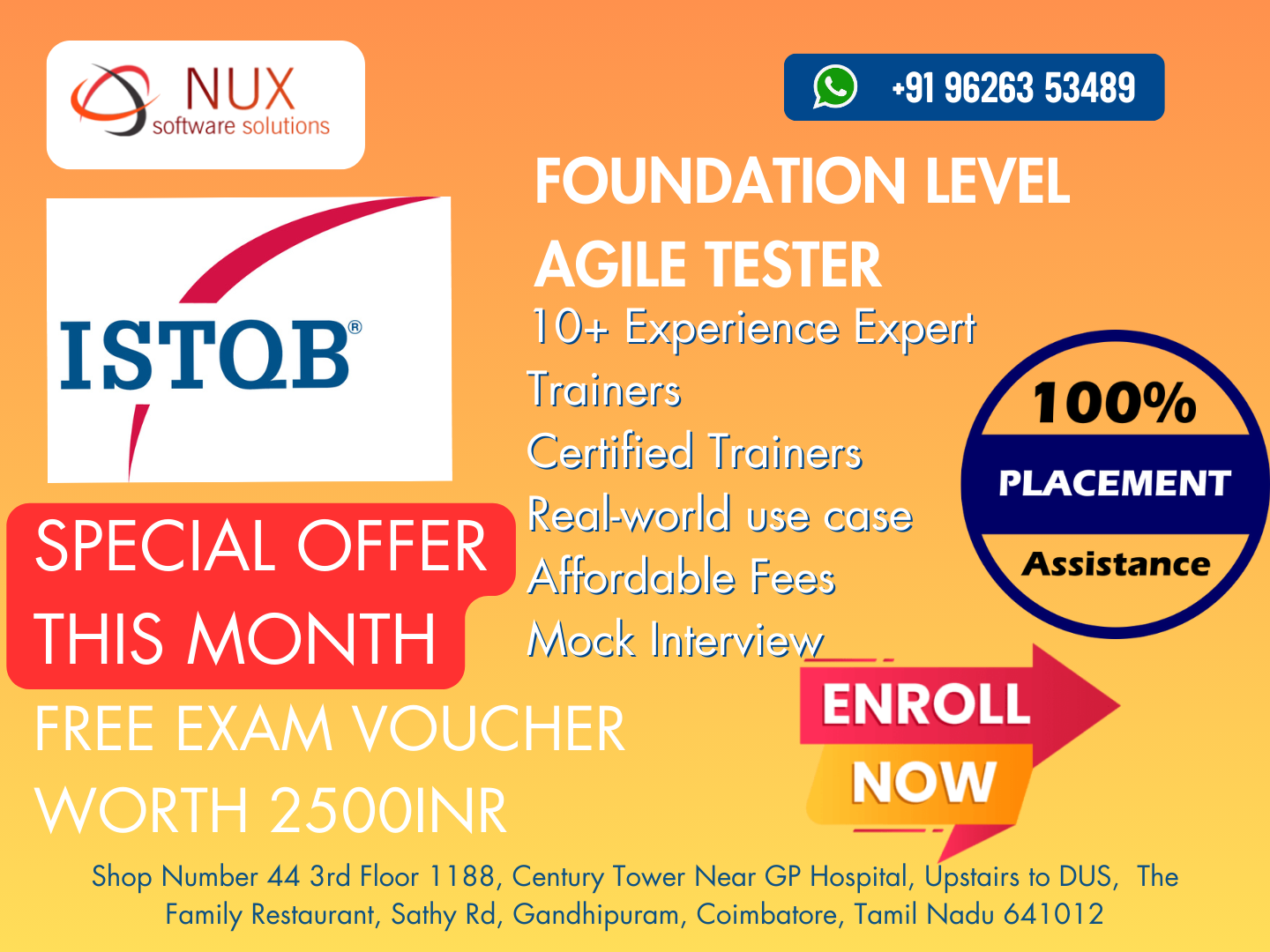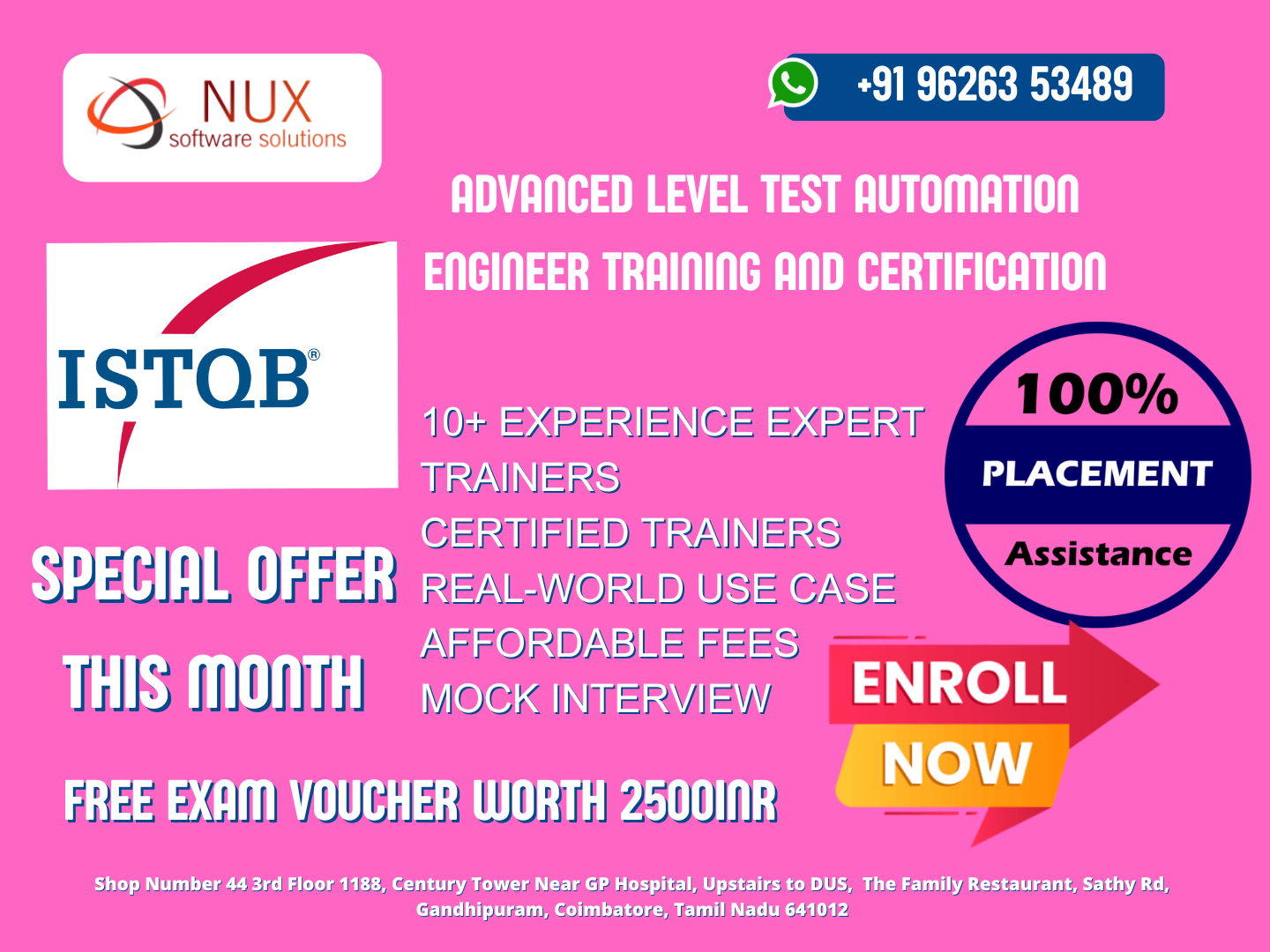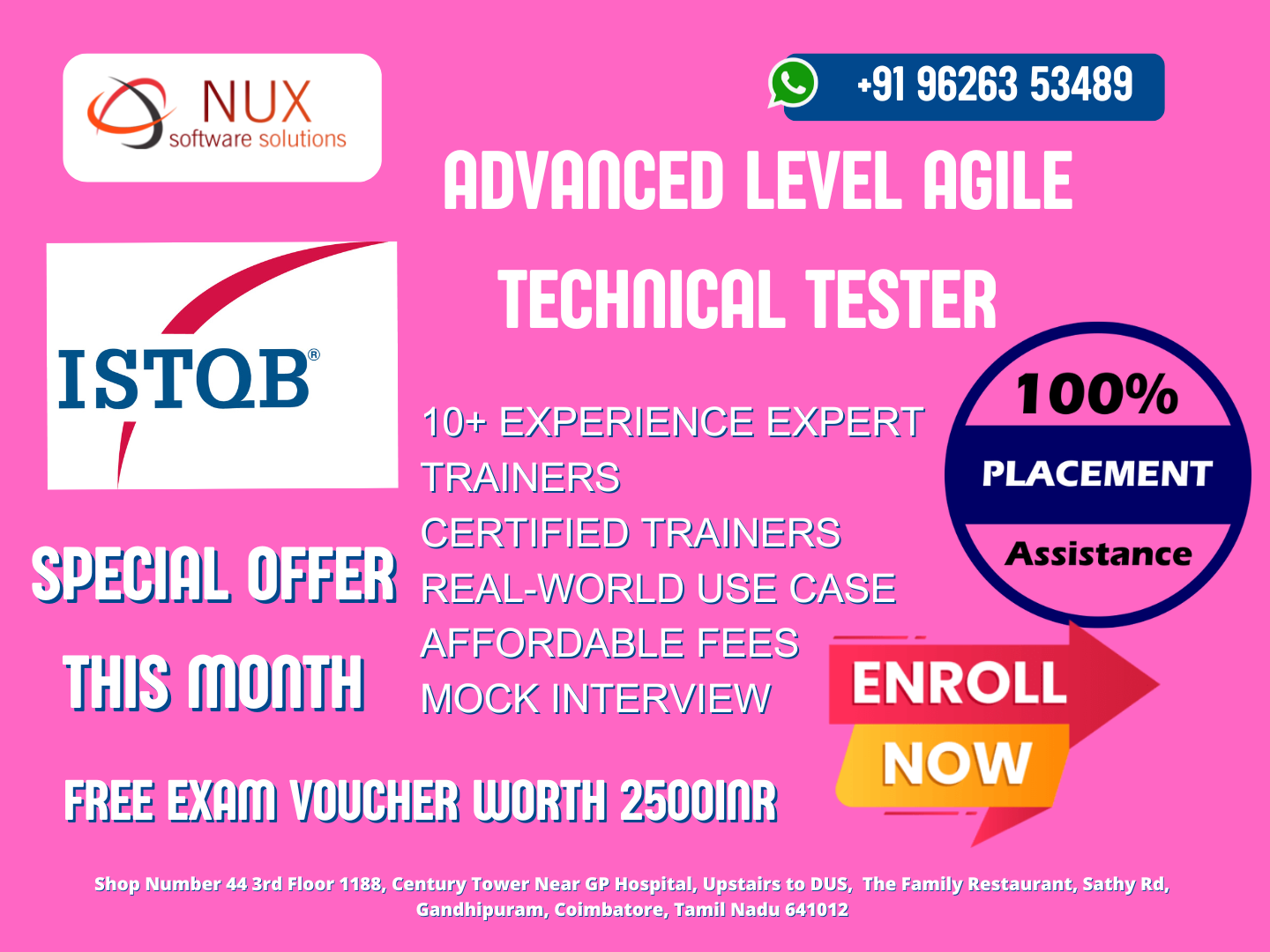Foundation Level Agile Tester Training


Best Foundation level Agile Tester Certification training courses classes deliver by Nux software solutions in coimbatore. Nux software solutions in coimbatore has excellent and advanced training programs that will give you better performance & hands on experience. Our industry’s expert trainers offer a wide range of skills and experience in their graded areas.
The Training center environment is too good for professional, individual, corporate, live project training and industrial training. Labs infrastructure is advanced, well managed and you can access LAB 24X7 from anywhere. Training center has international expert trainers and they have excellent knowledge, real time industry experience.
Our Training programs combine with several innovative learning methods and delivery models. We understand your requirement and it will give you 100 percent growth for your career and provide the cost effective training programs and also work with flexibility for the trainees.
This Foundation level Agile Tester course is designed to teach participants the essentials of usability and how to effectively evaluate usability, user experience and accessibility. You will learn how to plan and prepare for usability testing and select the most appropriate testing location and participants. After understanding the application of usability reviews, testing and surveys you will be able to propose the most effective usability testing approach.
Testers, test analysts, test engineers, test consultants, test managers, user acceptance testers, and software developers working on usability issues will find this course useful, informative, and fun. We suggest that attendees hold the ISTQB Foundation Level certificate, especially if they intend to take the ISTQB Usability Tester exam, but non-certificate holders can benefit from the course.
Course Syllabus
Module
Introduction to this Syllabus
0.1 Purpose of this Document
0.2 Overview
0.3 Examinable Learning Objectives
1.0 Agile Software Development
1.1 The Fundamentals of Agile Software Development
1.1.1 Agile Software Development and the Agile Manifesto
1.1.2 Whole-Team Approach
1.1.3 Early and Frequent Feedback
1.2 Aspects of Agile Approaches
1.2.1 Agile Software Development Approaches
1.2.2 Collaborative User Story Creation
1.2.3 Retrospectives
1.2.4 Continuous Integration
1.2.5 Release and Iteration Planning
2.0 Fundamental Agile Testing Principles, Practices, and Processes
2.1 The Differences between Testing in Traditional and Agile Approaches
2.1.1 Testing and Development Activities
2.1.2 Project Work Products
2.1.3 Test Levels
2.1.4 Testing and Configuration Management
2.1.5 Organizational Options for Independent Testing
2.2 Status of Testing in Agile Projects
2.2.1 Communicating Test Status, Progress, and Product Quality
2.2.2 Managing Regression Risk with Evolving Manual and Automated Test Case
2.3 Role and Skills of a Tester in an Agile Team
2.3.1 Agile Tester Skills
2.3.2 The Role of a Tester in an Agile Team
3.0 Agile Testing Methods, Techniques, and Tools
3.1 Agile Testing Methods
3.1.1 Test-Driven Development, Acceptance Test-Driven Development, and Behavior-Driven Development
3.1.2 The Test Pyramid
3.1.3 Testing Quadrants, Test Levels, and Testing Types
3.1.4 The Role of a Tester
3.2 Assessing Quality Risks and Estimating Test Effort
3.2.1 Assessing Quality Risks in Agile Projects
3.2.2 Estimating Testing Effort Based on Content and Risk
3.3 Techniques in Agile Projects
3.3.1 Acceptance Criteria, Adequate Coverage, and Other Information for Testing
3.3.2 Applying Acceptance Test-Driven Development
3.3.3 Functional and Non-Functional Black Box Test Design
3.3.4 Exploratory Testing and Agile Testing
3.4 Tools in Agile Projects
3.4.1 Task Management and Tracking Tools
3.4.2 Communication and Information Sharing Tools
3.4.3 Software Build and Distribution Tools
3.4.4 Configuration Management Tools
3.4.5 Test Design, Implementation, and Execution Tools
3.4.6 Cloud Computing and Virtualization Tools


